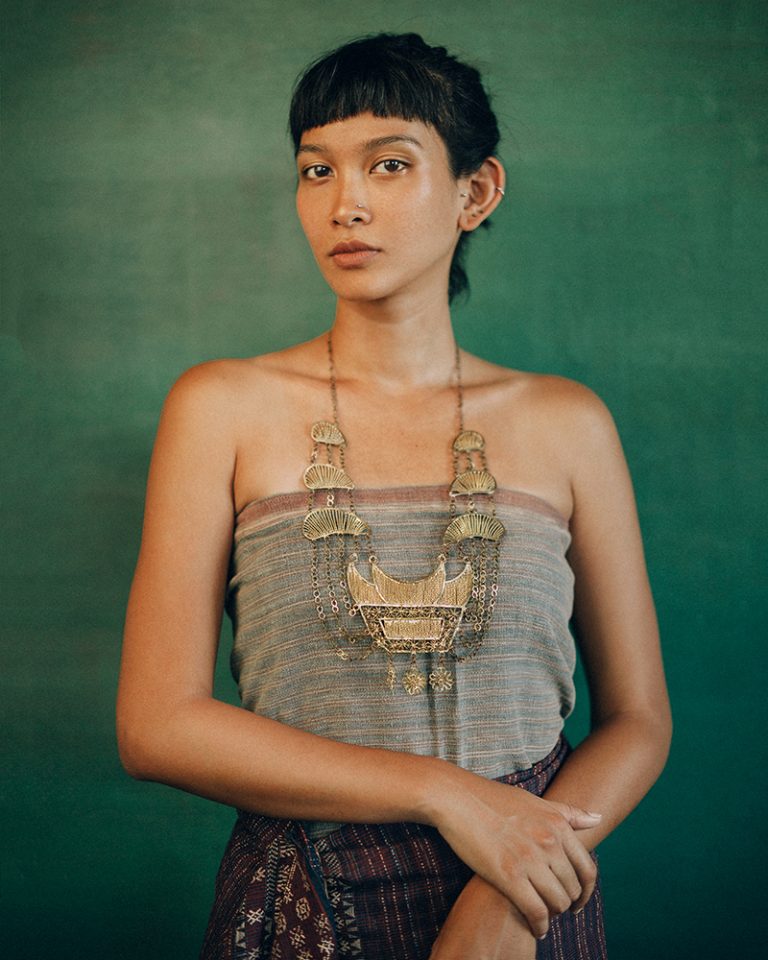The Weaving of Vow

In tropical forest filled with sky high bamboo and shore lines extended along the south part of Sumatra live an ethnic group known for the law long before the idea of Indonesia existed. Rejang ethnic group lives in the south coast of Bengkulu, from the top border of the region down to the border of Musi River.
It is a balmy humid and hot area where the produced goods are fruits such as durian, papaya, and also root vegetables.

The forest is filled plants with strong roots attached to the soil. This plant is called Kloi, a vine that the weavers use to produce yarns by combing and brushing it until it turned soft.

Kloi yarns made Rejang’s ceremonial woven cloth called Delamak. This cloth is Rejang’s respected textile as it is known as the “vow” cloth. Every time you make a vow, both for politics and romantic union, Delamak is the cloth you wear. For every birth of a baby, they should be wrapped in Delamak as a symbol of the vow they make to the universe.

The motifs found in Delamak symbolizes the everyday life of coastal people; boats, coastal lines, and a distinctive South Sumatran geometric motif; Siku Keluang, a motif inspired by the tip of green bamboos.

Nowadays, nobody produces it anymore, as the artisans from the ethnic group of Rejang had passed away.
A sad fact indeed, but we do hope that with or without Delamak, the people of Rejang ethnic group would stick to their vow.

















